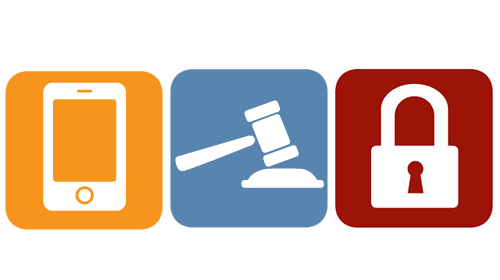
For more than seven years, the government has collected the phone records of every American under Section 215 of the Patriot Act, without ever having to justify the program's legality in a public and adversarial court hearing — that is, until this week. Tomorrow, the ACLU will appear in a federal courtroom in New York City to argue that the mass call-tracking program violates Americans' constitutional rights of privacy, free speech, and association, and that it goes far beyond what Section 215 authorizes. And the government will have to publicly defend the program to a judge, with the nation watching.
That it's taken this long to get here is astounding, and it provides even more evidence that excessive secrecy has poisoned our system of checks and balances. But it's encouraging that Americans will finally have their day in court, just months after learning the details of the government's vast spying program.
Our lawsuit, ACLU v. Clapper, was filed just a week after The Guardian published on June 5 the first of many disclosures based on documents obtained from NSA whistleblower Edward Snowden. We discovered then that the Foreign Intelligence Surveillance Court (FISC) had secretly ordered a subsidiary of Verizon to produce to the government the call records of every one of its customers over a 90-day period. Shortly thereafter, intelligence officials confirmed that the secret court order revealed by The Guardian belongs to a much broader program that leaves almost no American phone call untouched by the NSA.
The metadata program, which the FISC has regularly reauthorized in complete secrecy since 2006, amasses an enormous database of some of the innermost details of our private lives. As technology expert Edward Felten said in a declaration supporting our lawsuit, "telephony metadata can reveal information that is even more sensitive than the contents of [a] communication." In the aggregate, metadata can expose a "startlingly detailed" profile of each and every American's life — for example, her religion, political associations, contemplation of suicide, addictions to gambling or drugs, experience with rape, or difficulties struggling with sexuality.
Since we filed our suit, the government has been required to respond for the very first time to arguments that the bulk collection of Americans' call records is a gross invasion of privacy protected by the Fourth Amendment, as well as an infringement of the twin First Amendment liberties of free association and free expression. And it's also been forced to defend its dumbfounding interpretation of Section 215 — an interpretation that even the author of the law "vehemently disputes" was ever intended by Congress. (The Patriot Act's author, Jim Sensenbrenner (R-Wis.), went on to introduce a bill that, if passed, would go a long way toward reforming the surveillance programs.)
Each disclosure concerning the call-tracking program confirms that secret court system, which authorizes mass-surveillance programs and only hears from the government's side, has fundamentally undermined our democracy and cannot provide real oversight. Just this week, we learned that the FISC opinion at the heart of the government's bulk-collection programs was written to retroactively authorize a dragnet surveillance program that was already underway. As my colleague Patrick Toomey and I wrote this week in The Guardian:
Both our courts and Congress failed to put meaningful limits on theNSA's surveillance, trading away our privacy in the process. The American people never consented to the [NSA's] effort to "collect it all" by tracking and inspecting every digital footprint we leave behind. Instead, the secret opinions of a secret court retroactively blessed a vast NSA surveillance program years after it began.
Friday's hearing is narrowly about the ACLU's claims and the government's defense of the program. But even broader issues are also at stake: How much — and how truthfully — should the American public be told about the government surveillance programs carried out in its name? How much of our (and the rest of the world's) communications data should the NSA collect? Will courts allow new technologies to outrun the fundamental privacy protections enshrined in our Constitution?
Those questions may not all be resolved on Friday, but the court will still be among the very first to grapple with them where lawyers for someone besides the government get their say in an open, adversarial proceeding. While it might be unfortunate that such a staple performance of democracy is also a momentous occasion, we'll keep fighting to make sure it's the first of many.
Learn more about government surveillance and other civil liberties issues: Sign up for breaking news alerts, follow us on Twitter, and like us on Facebook.

